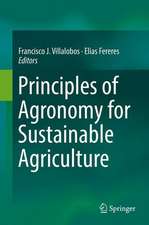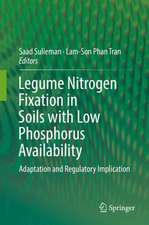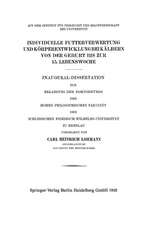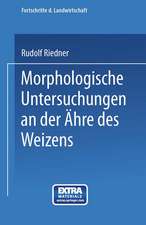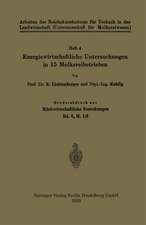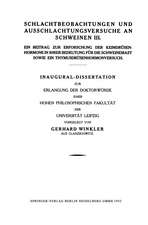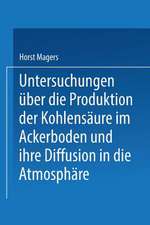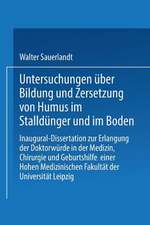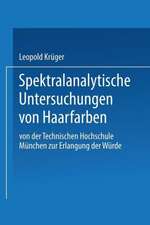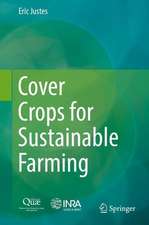Modelling water and nutrient dynamics in soil-crop systems: Applications of different models to common data sets - Proceedings of a workshop held 2004 in Müncheberg, Germany
Editat de K.Ch. Kersebaum, Jens-Martin Hecker, W. Mirschel, Martin Wegehenkelen Limba Engleză Paperback – 19 oct 2010
| Toate formatele și edițiile | Preț | Express |
|---|---|---|
| Paperback (1) | 1222.31 lei 6-8 săpt. | |
| SPRINGER NETHERLANDS – 19 oct 2010 | 1222.31 lei 6-8 săpt. | |
| Hardback (1) | 1226.73 lei 6-8 săpt. | |
| SPRINGER NETHERLANDS – 22 mai 2007 | 1226.73 lei 6-8 săpt. |
Preț: 1222.31 lei
Preț vechi: 1490.62 lei
-18% Nou
Puncte Express: 1833
Preț estimativ în valută:
233.88€ • 244.85$ • 193.53£
233.88€ • 244.85$ • 193.53£
Carte tipărită la comandă
Livrare economică 05-19 aprilie
Preluare comenzi: 021 569.72.76
Specificații
ISBN-13: 9789048171330
ISBN-10: 9048171334
Pagini: 280
Ilustrații: VIII, 272 p.
Dimensiuni: 195 x 260 x 15 mm
Greutate: 0.58 kg
Ediția:Softcover reprint of hardcover 1st ed. 2007
Editura: SPRINGER NETHERLANDS
Colecția Springer
Locul publicării:Dordrecht, Netherlands
ISBN-10: 9048171334
Pagini: 280
Ilustrații: VIII, 272 p.
Dimensiuni: 195 x 260 x 15 mm
Greutate: 0.58 kg
Ediția:Softcover reprint of hardcover 1st ed. 2007
Editura: SPRINGER NETHERLANDS
Colecția Springer
Locul publicării:Dordrecht, Netherlands
Public țintă
ResearchCuprins
Modelling water and nutrient dynamics in soil–crop systems: a comparison of simulation models applied on common data sets.- The performance of the model AMBAV for evapotranspiration and soil moisture on Müncheberg data.- Performance of the model SIMWASER in two contrasting case studies on soil water movement.- Application and validation of the models Theseus and Opus with two field experimental data sets.- Integrating a spatial micrometeorological model into the risk assessment for arable crops in hilly terrain.- Modelling soil–crop interactions with AGROSIM model family.- Crop simulation model of the second and the third productivity levels.- The NDICEA model, a tool to improve nitrogen use efficiency in cropping systems.- Simulation of water and nitrogen flows on field scale; application of the SWAP–ANIMO model for the Müncheberg data set.- Evaluation of water and nutrient dynamics in soil–crop systems using the eco-hydrological catchment model SWIM.- Modelling nitrogen dynamics in soil–crop systems with HERMES.- Calibration and validation of CERES model for simulating.- The impact of crop growth model choice on the simulated water and nitrogen balances.- Simulating trends in crop yield and soil carbon in a long-term experiment – effects of rising CO2, N deposition and improved cultivation.- Comparison of methods for the estimation of inert carbon suitable for initialisation of the CANDY model.- Müncheberg field trial data set for agro-ecosystem model validation.- Dynamics of water, carbon and nitrogen in an agricultural used Chernozem soil in Central Germany.- The lysimeter station at Berlin-Dahlem.
Textul de pe ultima copertă
Soil-crop-atmosphere interactions play a central role in the multiple functions of rural landscapes. Agro-ecosystem models are increasingly used to support decision making on different scales towards sustainable land use and management.This is accompanied by a demand of model users for model validation to get an idea about the reliability of models. This book contains articles from a workshop on "Modelling water and nutrient dynamics in crop-soil systems". Data sets from lysimeters and experimental fields of multiyear crop rotations were provided for modellers. A unique data set is provided of a 100 year long term field experiment regarding crop yield and organic carbon development under different management systems.
The book includes a detailed description of data sets which can be used by modellers and the papers describe the applications of 18 different modelling approaches describing soil-crop-atmosphere interactions for water, nitrogen and carbon dynamics.
A comparison of the models applied to the same data set is provided which points out similarities and differences in the description of single processes between the model approaches. This gives potential model users and decision makers the opportunity to compare the model outputs and get a closer insight about the applicability and required adaptations for the participating models.
The book includes a detailed description of data sets which can be used by modellers and the papers describe the applications of 18 different modelling approaches describing soil-crop-atmosphere interactions for water, nitrogen and carbon dynamics.
A comparison of the models applied to the same data set is provided which points out similarities and differences in the description of single processes between the model approaches. This gives potential model users and decision makers the opportunity to compare the model outputs and get a closer insight about the applicability and required adaptations for the participating models.
Caracteristici
Detailed description of data sets from lysimeters and experimental fields provided in this volume Unique data set of 100 year long term field experiment provided Provides potential model users and decision makes with an opportunity to compare model outputs

